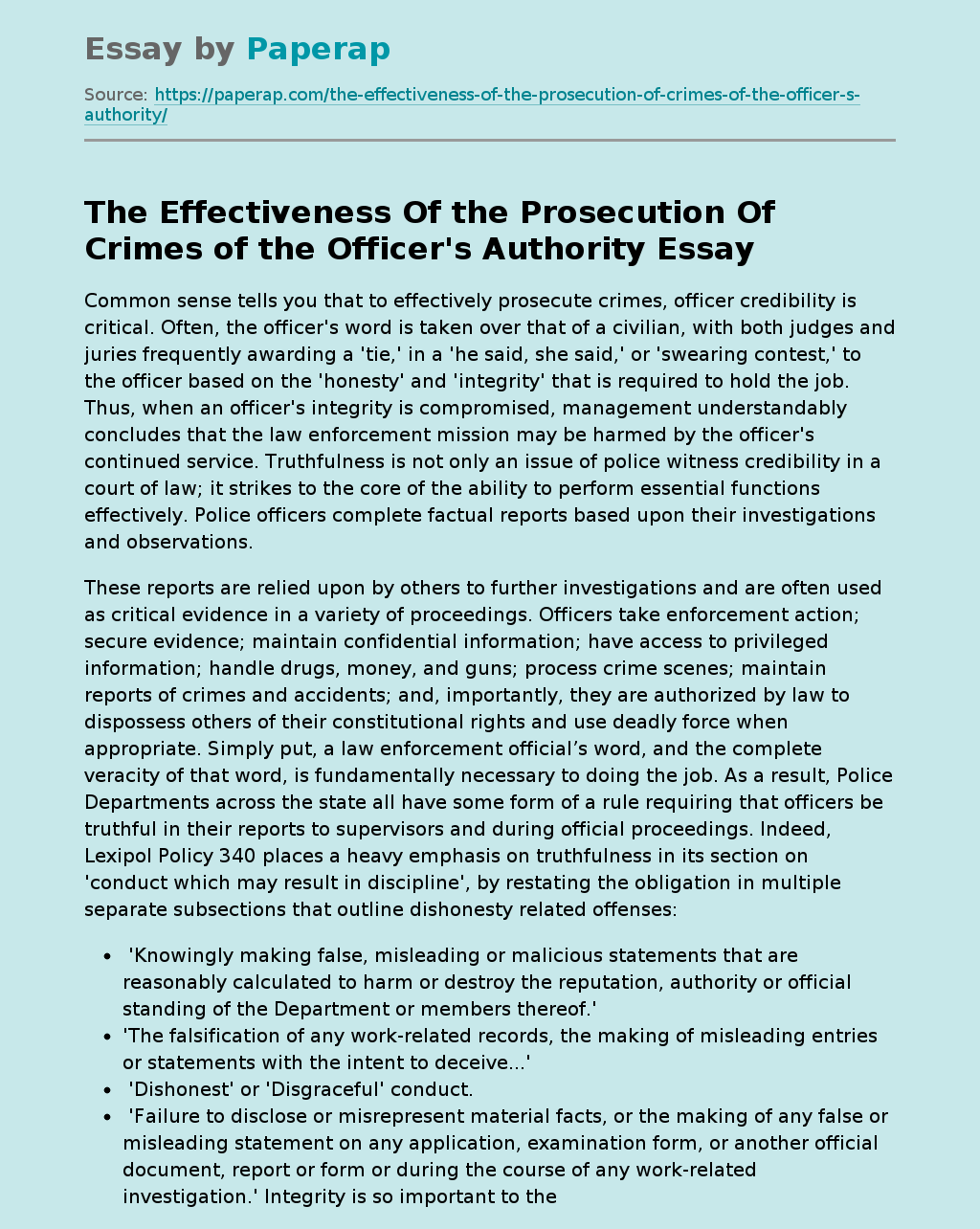Common sense tells you that to effectively prosecute crimes, officer credibility is critical. Often, the officer’s word is taken over that of a civilian, with both judges and juries frequently awarding a ‘tie,’ in a ‘he said, she said,’ or ‘swearing contest,’ to the officer based on the ‘honesty’ and ‘integrity’ that is required to hold the job. Thus, when an officer’s integrity is compromised, management understandably concludes that the law enforcement mission may be harmed by the officer’s continued service.
Truthfulness is not only an issue of police witness credibility in a court of law; it strikes to the core of the ability to perform essential functions effectively. Police officers complete factual reports based upon their investigations and observations.
These reports are relied upon by others to further investigations and are often used as critical evidence in a variety of proceedings. Officers take enforcement action; secure evidence; maintain confidential information; have access to privileged information; handle drugs, money, and guns; process crime scenes; maintain reports of crimes and accidents; and, importantly, they are authorized by law to dispossess others of their constitutional rights and use deadly force when appropriate.
Simply put, a law enforcement official’s word, and the complete veracity of that word, is fundamentally necessary to doing the job. As a result, Police Departments across the state all have some form of a rule requiring that officers be truthful in their reports to supervisors and during official proceedings. Indeed, Lexipol Policy 340 places a heavy emphasis on truthfulness in its section on ‘conduct which may result in discipline’, by restating the obligation in multiple separate subsections that outline dishonesty related offenses:
- ‘Knowingly making false, misleading or malicious statements that are reasonably calculated to harm or destroy the reputation, authority or official standing of the Department or members thereof.
’
- ‘The falsification of any work-related records, the making of misleading entries or statements with the intent to deceive…’
- ‘Dishonest’ or ‘Disgraceful’ conduct.
- ‘Failure to disclose or misrepresent material facts, or the making of any false or misleading statement on any application, examination form, or another official document, report or form or during the course of any work-related investigation.’ Integrity is so important to the law enforcement profession that a single lie can cost an officer his/her career. As noted in Kolender, supra at 722: While at common law, every dog was entitled to one bite, we know of no rule of law holding every deputy sheriff is entitled to [tell one lie] before he or she can be discharged
The Effectiveness Of the Prosecution Of Crimes of the Officer's Authority. (2021, Dec 13). Retrieved from https://paperap.com/the-effectiveness-of-the-prosecution-of-crimes-of-the-officer-s-authority/

